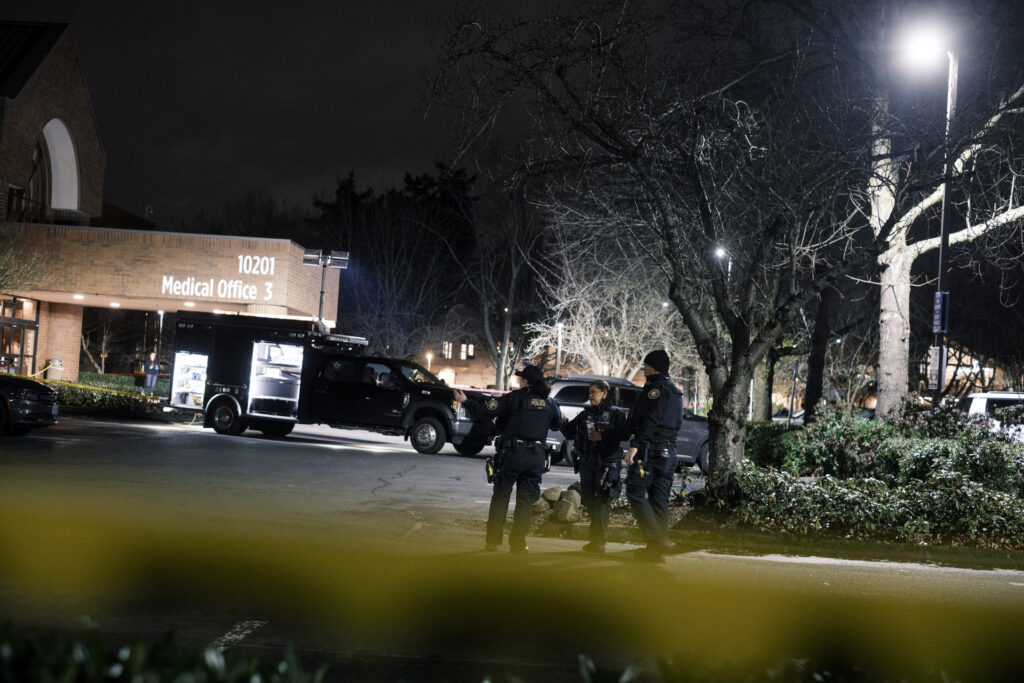Share
The city of Fresno is saying no to proposed PG&E rate increases.
Mayor Jerry Dyer wrote a letter to the California Public Utilities Commission on Aug. 19 with concerns about how the proposed rate hikes would affect Fresno. The Fresno City Council will discuss a resolution opposing the increases at its Thursday meeting.
PG&E filed a rate increase request that could see a 22% increase for residential customers between 2023 and 2026.
PG&E Rates Unfair to Valley Customers, Mayor Says
“Unfortunately, enormous PG&E bills are a significant threat to most of our disadvantaged communities and struggling families trying to make ends meet,” Dyer wrote to the CPUC.
Dyer said rate increases will also hurt businesses and he called the rate structure itself “flawed.”
Figures cited by Dyer and a city staff report show that even PG&E customers under a discount program known as CARE pay more for energy than people in other states at non-discounted rates. Regular PG&E customers “pay close to 80% more per kilowatt-hour than the national average.”
The mayor also asked the CPUC to “freeze current rates until equitable rate reforms and spending control measures to offset rate increases are implemented.”
A CalMatters report last month summarized a UC Berkeley study as to why — high fixed costs because of California’s size and geography, the CARE program, and wildfire mitigation.
Rates Much Higher Than Costs of Electricity
According to the nonpartisan nonprofit Next 10, PG&E and two other large utilities in the state charge “prices that are two to three times higher than the actual cost to produce and distribute the electricity provided.”
PG&E critics say the company takes care of company executives at the expense of ratepayers. In April, the San Jose Mercury News reported: “Several top PG&E executives harvested hefty increases in their pay during 2020, a year in which the company emerged from bankruptcy and caused a fatal wildfire in Shasta County. … ”
Dyer wrote that built into PG&E’s price are subsidies to pay for wildfires and decommissioning nuclear power plants, “disproportionately paid by San Joaquin Valley customers — which includes Fresno.”
“With record heatwaves, fires and inflation, now is not the time to raise utility rates, especially on the working class and vulnerable populations in the Central Valley,” Fresno City Council President Luis Chavez said via text. “We pay on average higher rates than other parts of the state and this rate increase would devastate families in the city of Fresno already trying to stay afloat during the pandemic.”
Chavez is a co-sponsor of the resolution to oppose, along with Dyer.
PG&E Explains Rate Hike
PG&E said the increases are about safety and mitigation risk.
“Starting in 2023, a typical non-CARE residential customer would experience an approximate 18 percent bill increase. While the GRC (general rate case) is one component of a PG&E bill, there are other filings that impact customer bills also. With these new safety, risk reduction, reliability improvements and clean energy investments as part of this GRC and other filings, the average residential customer bill is expected to increase about five percent annually, on average, from 2021 through 2026,” the company said in an email after this story initially published.
PG&E encouraged its customers to take advantage of assistance programs such as CARE or the Family Electric Rate Assistance.
“The investments proposed in PG&E’s 2023 GRC will strengthen our electric system against wildfire and other environmental risks, and enhance gas and electric system safety, while reinforcing our commitment to provide even more clean, renewable energy for California,” the company said.
The company also referred to its news release, discussing its proposed rate hike.
Other Groups Concerned
The city of Fresno isn’t the only entity sounding the alarm on the proposed rate hikes. Consumer advocate group The Utility Reform Network says PG&E’s proposal could increase the average user’s bill by $660 in 2026.
“We’re terribly alarmed by this record-breaking rate increase that PG&E just put in it. It’s absolutely enormous,” TURN executive director Mark Toney told GV Wire. “We just think this is completely outrageous, mind-boggling.”
TURN is asking the CPUC to require PG&E to only increase rates at the cost of inflation.
Toney supports Fresno opposing the rate increases.
“I’m very encouraged. We think that more cities and more elected officials need to pay attention to how much PG&E is trying to raise rates and really need to get involved in these proceedings,” Toney said.
Public Process Starts at CPUC
On Monday, the CPUC held a prehearing conference, the first step in the public process to discuss PG&E’s rate case.
“Parties to the proceeding (intervenors and ratepayer advocates) bring a diversity of viewpoints to the proceeding. This is particularly important in general rate cases where the CPUC’s duty is to ensure that a utility’s requested costs and expenses, and the resulting rates, are just and reasonable,” CPUC spokesperson Terrie Prosper said.
The public can comment on the proceedings at this link. There is no timetable when CPUC could make its decision.
The CPUC is a five-member board appointed by the governor to regulate the state’s utility services, including PG&E. All current members are Democrats and live in either the Sacramento area or the Bay Area.
Three members were appointed by Gov. Gavin Newsom; the other two by then-Gov. Jerry Brown. Members serve six-year terms and are paid $159,068 per year.
RELATED TOPICS:
Categories

Google Guys Say Bye to California


















